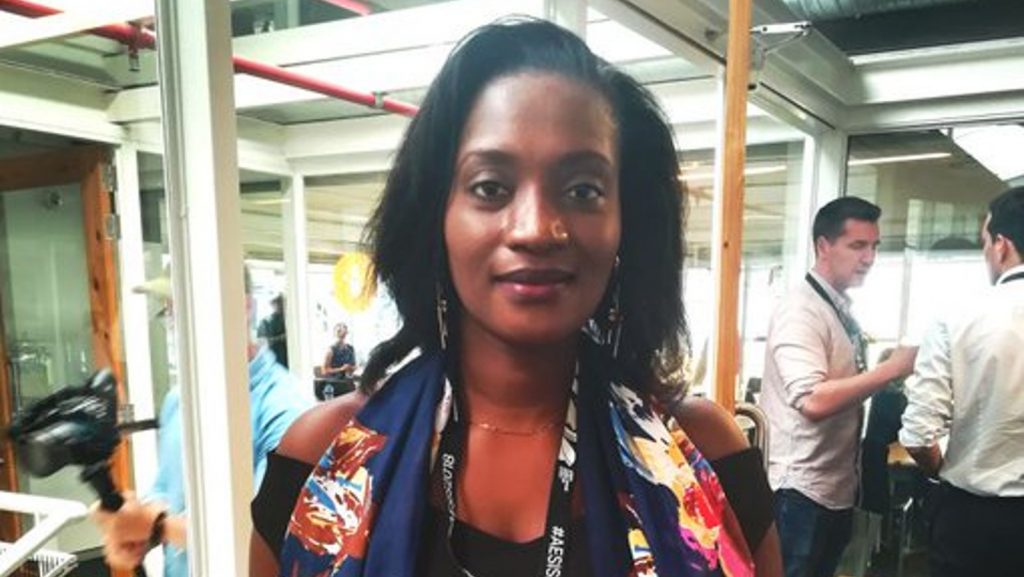Artificial Intelligence is no longer a distant promise or a Silicon Valley experiment. It’s embedded in the now. South Africans are already using generative…
Dakar Network Angels sets sights on making four investments per year

Dakar Network Angels (DNA), which launched last month, aims to make four investments each year in francophone Africa, with investment tickets of between $20 000 and $100 000, the network’s founder Marième Diop has revealed.
Diop (pictured above) told Ventureburn in an email last Saturday (13 April) that the sector-agnostic group currently has capacity to invest up to $320 000 this year.
DNA is actively seeking investment opportunities in tech companies that are less than five years old and that are solving real problems, have significant market opportunities in francophone Africa and have the ability to expand to at least two other countries.
To become a member of DNA individuals have to commit to investing a minimum of $10 000 a year, while corporates will have to commit $30 000
In addition to this DNA wants to back founders who are working on products full time. “We will take up to 10% ownership depending on the terms and conditions negotiated with startups and we will not seek to take a board seat,” explained Diop.
The angel investment group — which is targeting one investment per quarter — last month announced it had invested $25 000 in Ivorian cleantech startup Coliba.
Diop said DNA received good quality applications for its first cohort which had made it difficult for its members to choose which company to back.
She explained that after a selective process DNA’s members voted for Coliba as the firm is a social enterprise that is leveraging tech to solve two major pain points in Africa — big amounts of uncollected waste and the formalisation of the informal waste collectors industry.
Members distributed across four continents
Diop said DNA currently has 31 members distributed across the US, Africa, Europe and Asia. The group’s first members include Felix Weyerstahl, Tayo Akinyemi, Mohamed Ndiaye and Fabrice Nze Bekale.
She explained that to become a member, individuals will have to commit to investing a minimum of $10 000 every year, while corporates will have to commit $30 000.
“Our members are either investment professionals or industry experts who are passionate about entrepreneurship in Africa and are willing to invest their money, time, experience and network to enable promising African entrepreneurs to grow,” she said.
DNA members, she pointed out, have hands-on involvement in the group’s investment decision making and monitoring of investees.
All investment opportunities will be subject to rigorous selection criteria set by DNA members and will be carefully qualified, studied and evaluated. “Each member will decide to invest or not in a company and we will only invest if we reach our quorum,” she added.
The group will mainly scout and source its own deals leveraging its network. Diop said DNA will soon invite startups to apply for its second cohort on its website.
DNA is also working with several partners including startup funding platform VC4A. In addition, Diop added that the group is currently in talks with many potential partners from across the globe.
More than just investments
Francophone Africa entrepreneurs, Diop said, in contrast to their anglophone counterparts lack models to look up to, funding opportunities to tap into, as well as connections with the rest of Africa and the world to find mentorship opportunities and market access.
DNA aims to change that. “With the DNA, we want to leverage our network to bring business support resources and services as much as we can to help our investees build a foundation for growth,” said Diop.
She said once DNA invests in a company, the group will assist founders to get the fundamentals in place to scale quickly, become sustainable and fundable.
Last month DNA held its first public event, an investment forum which took place on 17 March in Dakar. The event saw DNA’s first cohort finalists pitch their solutions to the group’s members.
In addition, African Business Angel Network (ABAN) and DNA advisor conducted a workshop on angel investment at the event.
‘Way to give back’
Diop is also a venture capitalist (VC) at Orange Digital Ventures and explained that she is involved with DNA in her free time. She described her work with the group as “my way to give back to my community”.
The idea for DNA, she said, was birthed six months ago when she reached out to friends to discuss the idea of starting an angel fund for francophone entrepreneurs.
“I’ve been investing for two years now with a fund based in francophone Africa (Orange Digital Ventures) but haven’t invested in any francophone startups yet. The problem is the lack of investable companies which is common to most francophone countries,” she said.
Diop pointed out that in 2017, three anglophone countries — South Africa, Kenya and Nigeria — accounted for 76% of investments in African tech startups, and 78% in 2018.
She added that out of the total amount invested, francophone Africa — which is comprised of 31 countries, about 57% of Africa — only accounted for 10% of investments in 2017 and 4.5% last year.
Moreover, she explained, only 12 of the 37 seed funds on the continent target French-speaking countries, with none having invested in a francophone startup to date.
Said Diop: “So, I just realised that if nothing was done, this situation would never change because the lack of local investment funds and formal business angels networks that are able to address the needs of seed stage startups could hinder the rise of digital technology in Africa”.
Featured image: Dakar Network Angels founder and Orange Digital Ventures VC (Bertha Centre via Twitter)


